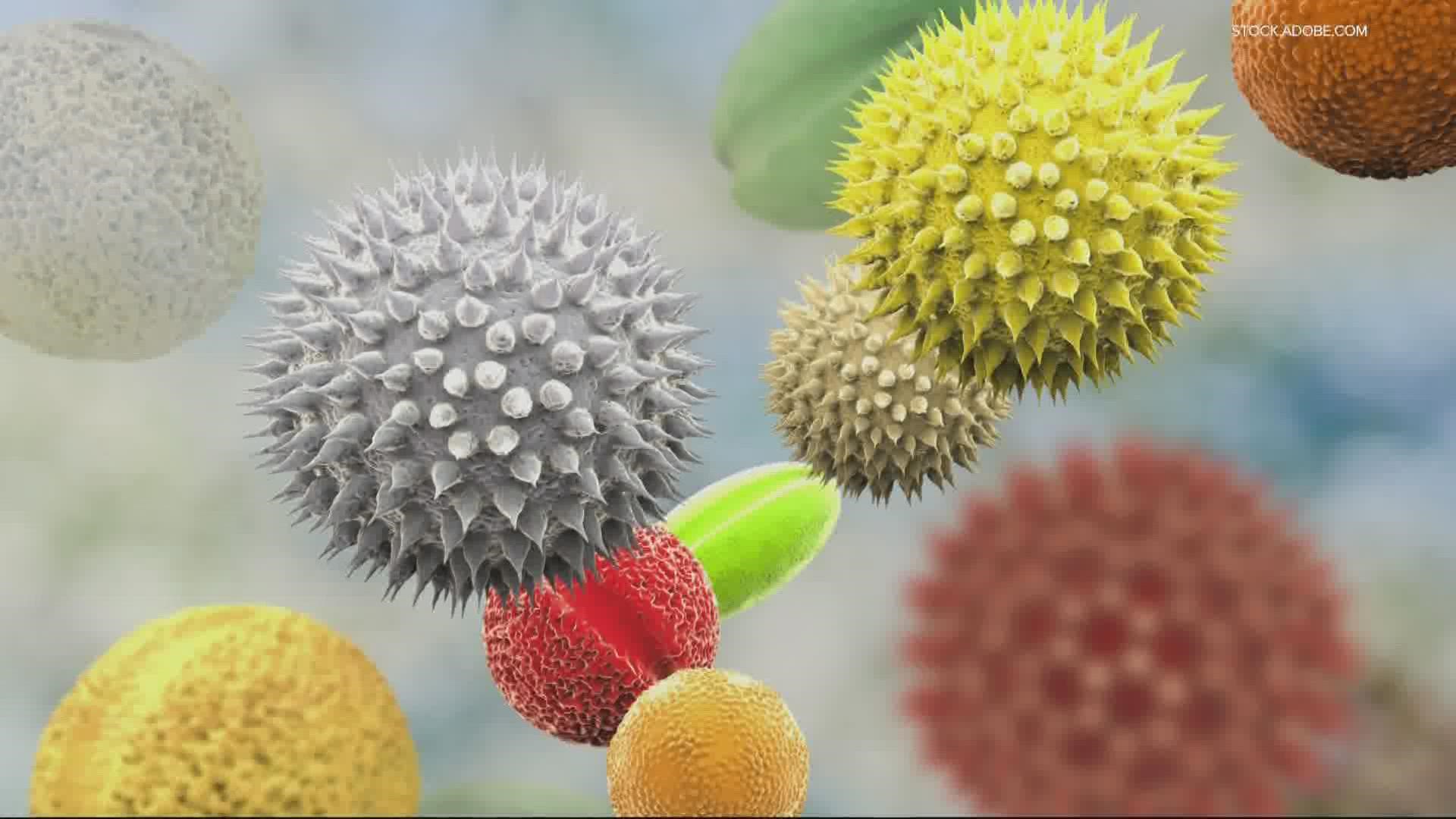PORTLAND, Oregon — Feeling that tickle in your nose? You're not alone.
“It could absolutely be allergies,” said Dr. Shyam Joshi, medical director of allergy and immunology at Oregon Health & Science University. Joshi said tree pollen season started about a month early due in part to dry, sunny stretches in December and January.
“Then we had several weeks of heavy rain, and for the last few days we've seen more sunshine again,” said Joshi. “So the pollen county has significantly increased over the last week.”
For many allergy sufferers concerned about COVID-19, the news is likely a relief.
“We get that question quite frequently—‘Are these symptoms allergies or are they COVID?’” said Joshi. “Sometimes it's hard to tell but generally if we're seeing a lot more itchy watery eyes, sneezing, itchy nose, we're thinking most likely it's going to be allergies.”
Besides taking over-the-counter medication, doctors have other suggestions for controlling pollen exposure:
- Keep your windows closed
- Change your clothes when you come in from outdoor activity
- Try a sinus rinse
- Use air filters at home
- Wear a face mask
“I have several patients who choose to wear masks even when there's nobody around because they do notice that their allergy symptoms are getting better,” said Joshi.
When in doubt, Dr. Joshi said it's a reasonable precaution to take a COVID test. Just know that various allergens will be cycling through between now and September, including some of the highest pollen counts for grass in the world! But for folks who are new to town, there is some good news.
“One very common allergen that we see in most of the country is ragweed,” said Joshi. “We actually have no ragweed here.”

